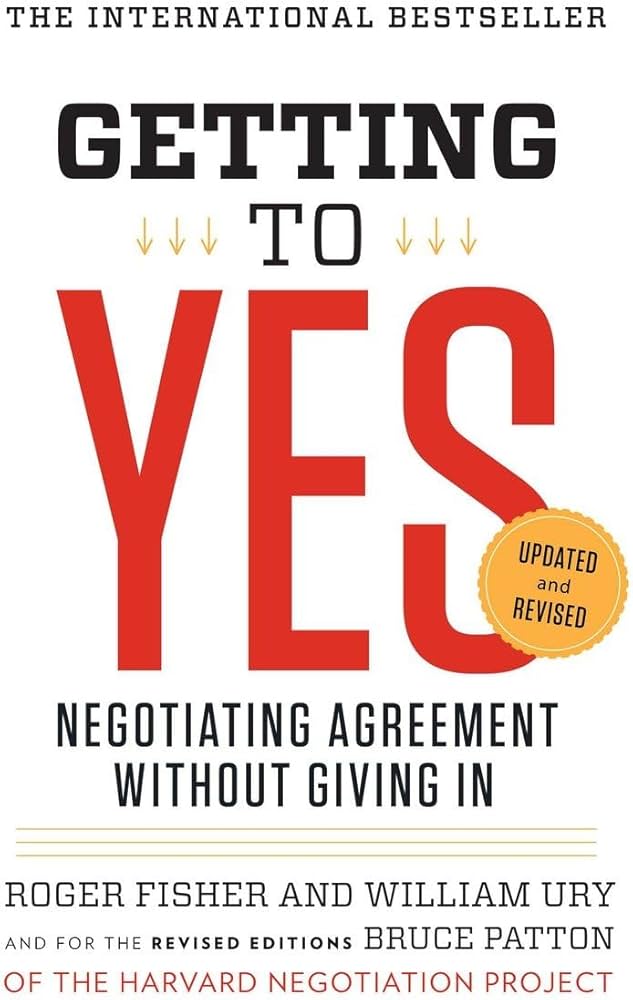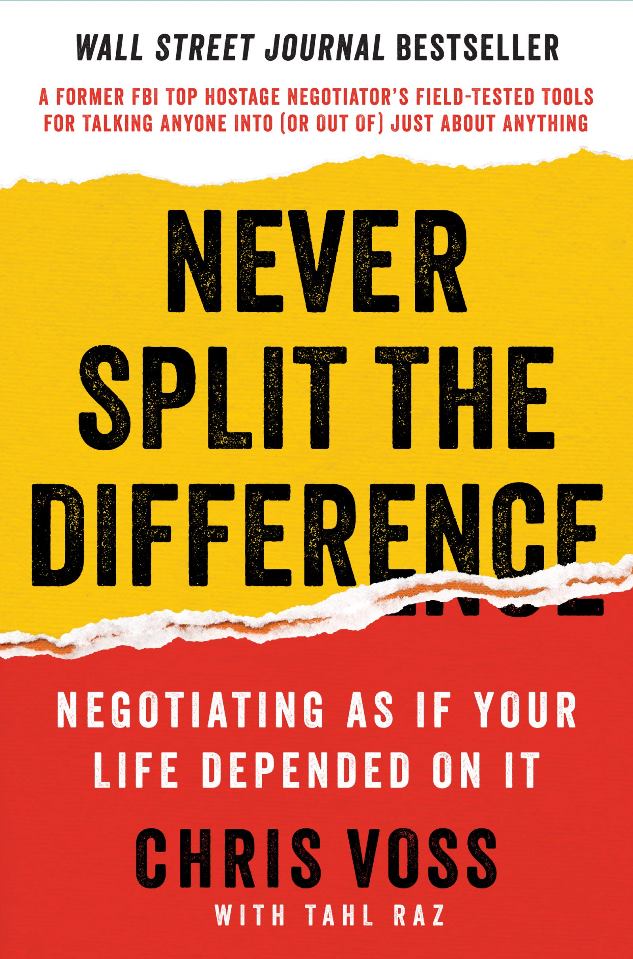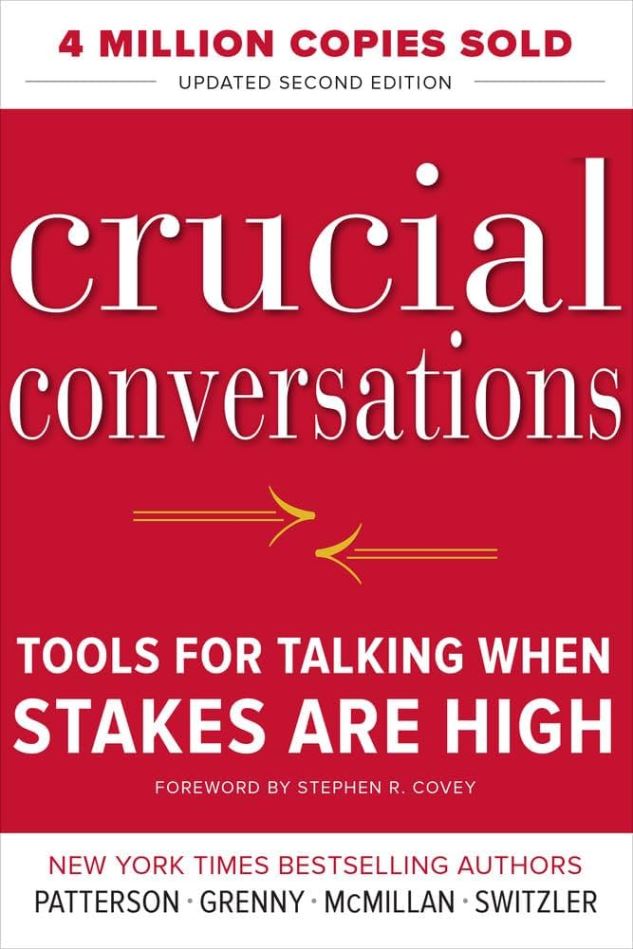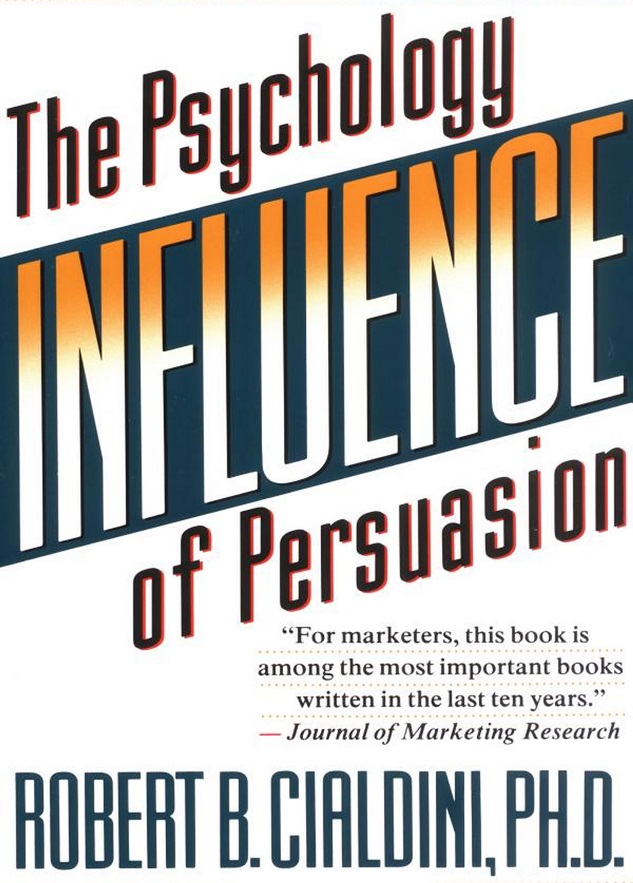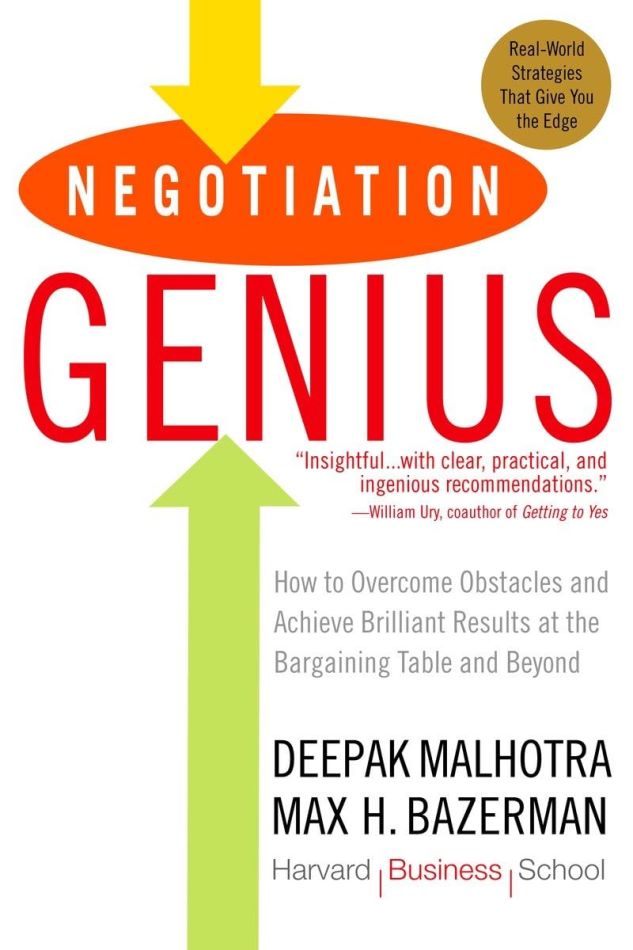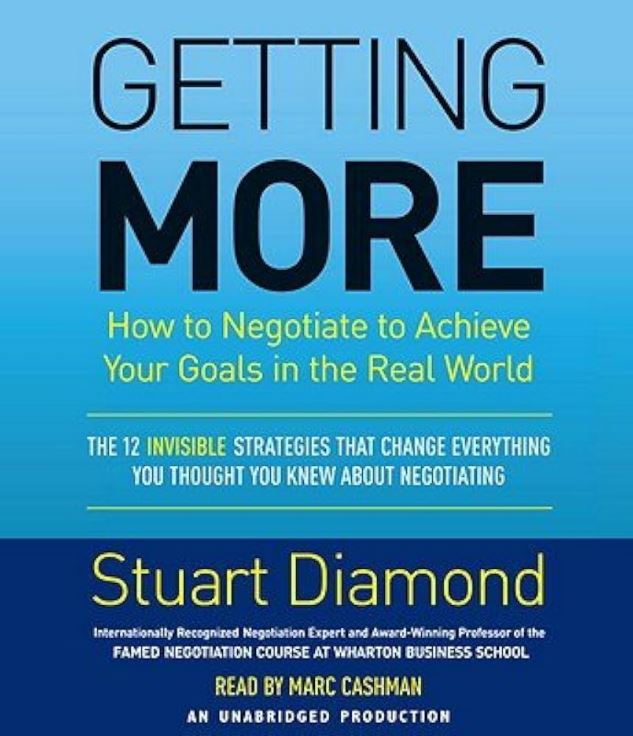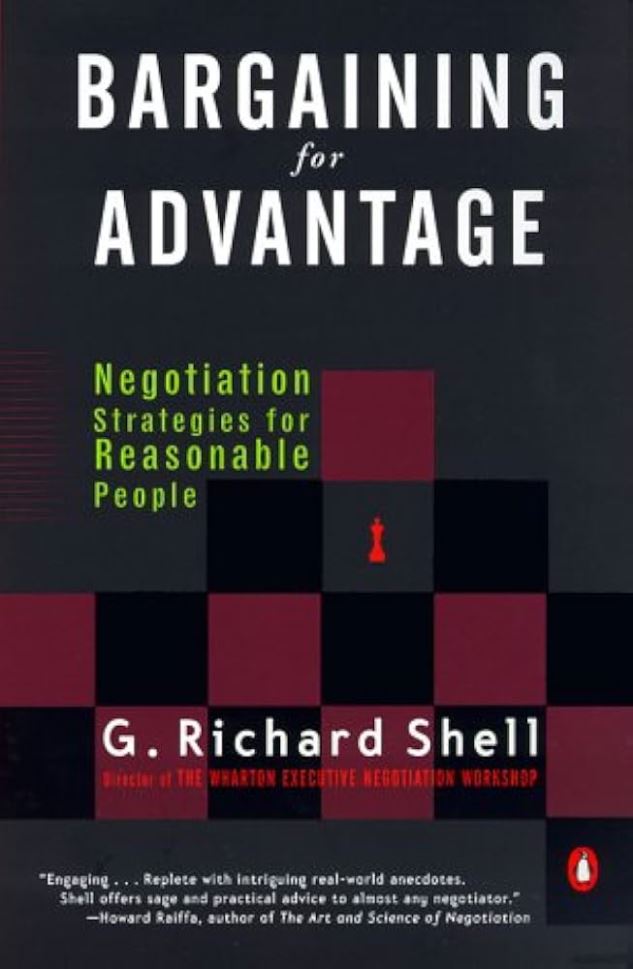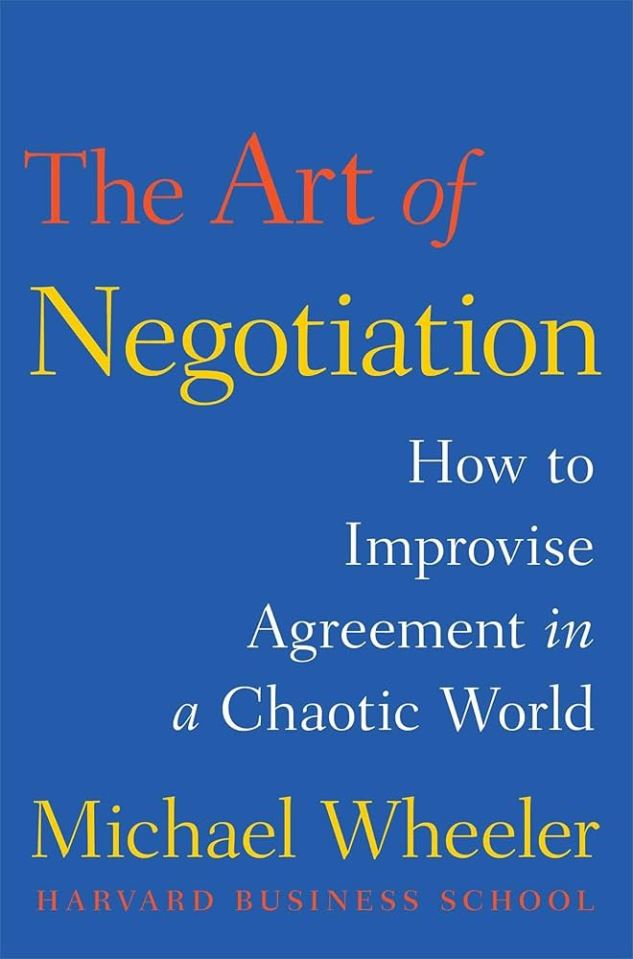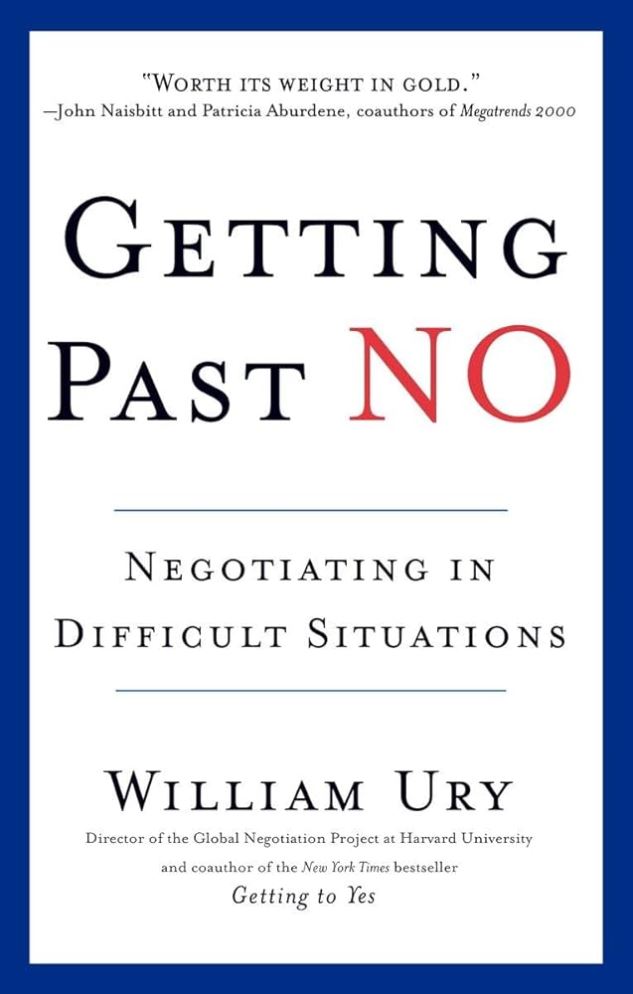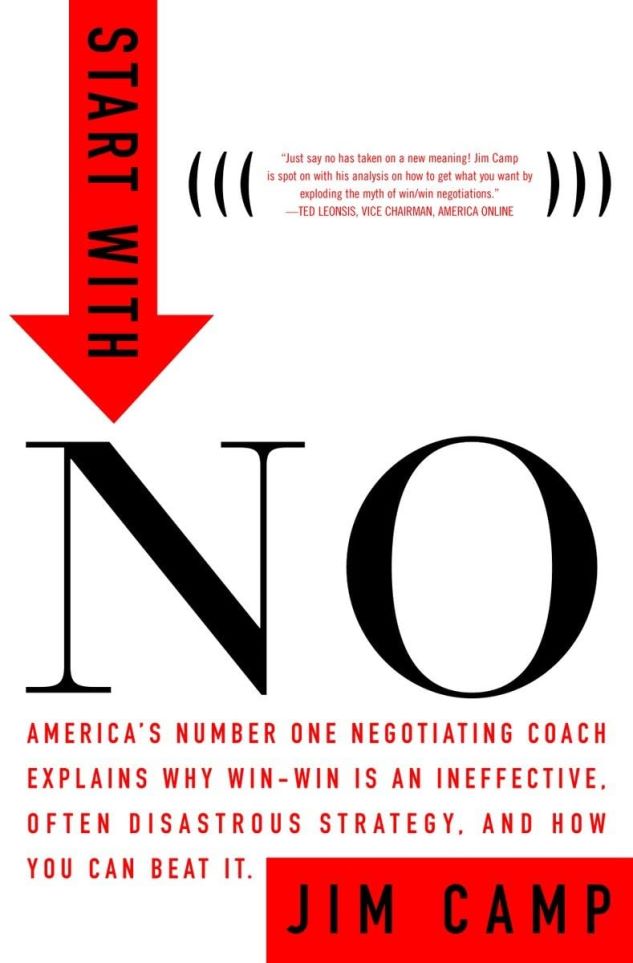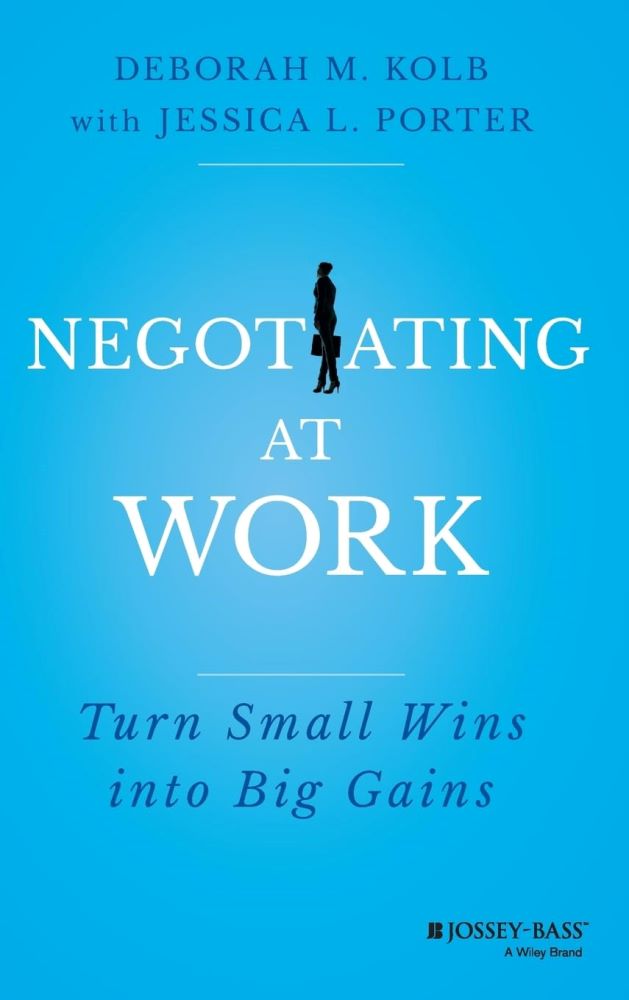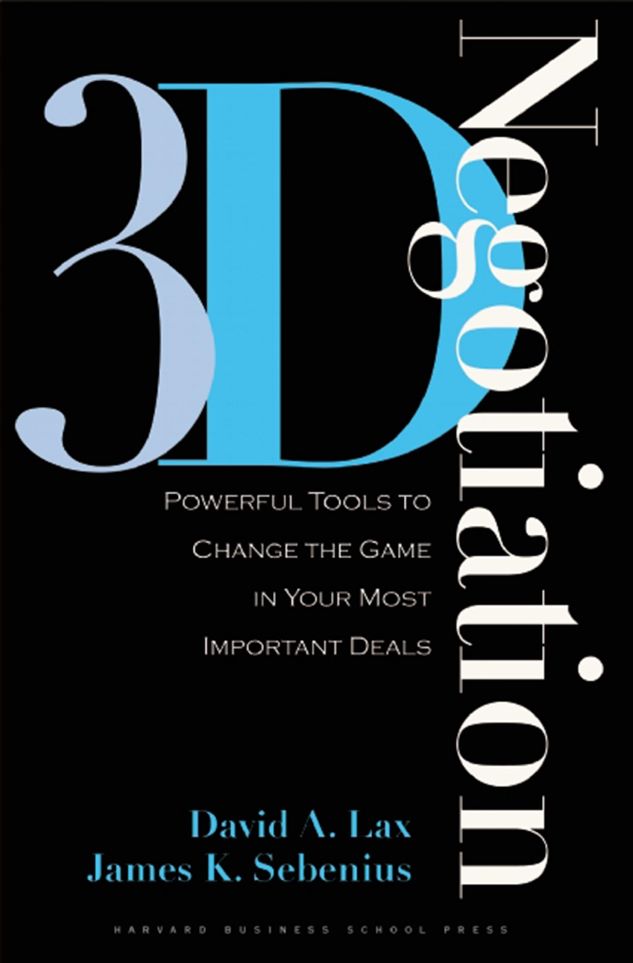Negotiation is an essential life skill, whether you’re closing a business deal, resolving a conflict, or simply asking for a better deal. The following books provide invaluable insights and strategies to help you excel in various negotiation scenarios. From foundational concepts to advanced techniques, this list offers a comprehensive guide to mastering the art of negotiation.
1. Getting to Yes: Negotiating Agreement Without Giving In
Authors: Roger Fisher and William Ury
Who Should Read It:
M&A professionals and anyone looking to improve collaboration and relationship-building in negotiations.
Why Read It:
This classic introduces the concept of principled negotiation, which emphasizes separating people from the problem and focusing on mutual interests. It’s a must-read for fostering teamwork and creating solutions that satisfy all parties involved.
Key Takeaways:
- Focus on interests rather than positions.
- Separate people from the problem to reduce emotional barriers.
- Generate creative options for mutual gain.
As Newsweek aptly puts it, this book “may help convert the Age of Me to the Era of We.”
2. Never Split the Difference: Negotiating As If Your Life Depended On It
Author: Chris Voss
Who Should Read It:
Anyone facing high-stakes negotiations or feeling overwhelmed by complex scenarios.
Why Read It:
Written by a former FBI hostage negotiator, this book provides field-tested psychological strategies that emphasize emotional intelligence and empathy.
Key Takeaways:
- Use tactical empathy to connect with the other party.
- Leverage calibrated questions to guide conversations.
- Mirror their words to build rapport and create a positive negotiation atmosphere.
According to Voss, “Your job is to step into their shoes and understand their perspective.”
3. Crucial Conversations: Tools for Talking When Stakes Are High
Authors: Kerry Patterson, Joseph Grenny, Ron McMillan, and Al Switzler
Who Should Read It:
Professionals navigating sensitive or emotionally charged negotiations.
Why Read It:
This book offers practical strategies for handling high-stakes conversations while building trust and achieving alignment.
Key Takeaways:
- Create a safe space for open dialogue.
- Use the “STATE” technique: Share facts, Tell your story, Ask for their path, Talk tentatively, Encourage testing.
- Focus on being persuasive, not abrasive.
This book is a go-to guide for navigating tough conversations and maintaining strong relationships.
4. Influence: The Psychology of Persuasion
Author: Robert Cialdini
Who Should Read It:
Anyone seeking to understand the psychological principles behind persuasion.
Why Read It:
A timeless classic, this book identifies six principles of persuasion—reciprocity, commitment, social proof, authority, liking, and scarcity—that are essential for effective negotiation.
Key Takeaways:
- Reciprocity fosters goodwill and collaboration.
- Highlight scarcity to create urgency.
- Build trust by demonstrating authority and credibility.
Cialdini emphasizes ethical persuasion, ensuring your strategies are not only effective but also principled.
5. Negotiation Genius: How to Overcome Obstacles and Achieve Brilliant Results
Authors: Deepak Malhotra and Max H. Bazerman
Who Should Read It:
Professionals looking for a detailed, step-by-step guide to negotiation.
Why Read It:
Drawing from behavioral research and real-life examples, this book equips readers with tools to navigate complex negotiations and create value in challenging situations.
Key Takeaways:
- Preparation is key—understand the other party’s interests and goals.
- Focus on value creation, not just compromise.
- Learn to negotiate effectively even from a position of weakness.
Malhotra and Bazerman’s insights make this a powerful resource for elevating your negotiation skills.
6. Getting More: How to Negotiate to Achieve Your Goals in the Real World
Author: Stuart Diamond
Who Should Read It:
Professionals and individuals looking for negotiation techniques that apply to everyday situations.
Why Read It:
Diamond’s approach integrates emotional intelligence and cultural considerations, making it applicable in diverse scenarios—from boardrooms to family discussions.
Key Takeaways:
- Ask open-ended questions to uncover deeper interests.
- Use emotional intelligence to build rapport and trust.
- Expand potential outcomes by thinking beyond traditional tactics.
Named the best career book by The Wall Street Journal, this guide is practical and universally applicable.
7. Bargaining for Advantage: Negotiation Strategies for Reasonable People
Author: G. Richard Shell
Who Should Read It:
Negotiators seeking ethical, strategic approaches to achieve their goals.
Why Read It:
This book provides a systematic framework for balancing fairness with strategic advantage, emphasizing preparation and thoughtful concessions.
Key Takeaways:
- Take the “Negotiation I.Q. Test” to identify your strengths.
- Accommodate the other party’s needs without compromising your values.
- Build long-term relationships through principled negotiation.
Shell’s insights help negotiators maintain a moral backbone while achieving exceptional results.
8. The Art of Negotiation: How to Improvise Agreement in a Chaotic World
Author: Michael Wheeler
Who Should Read It:
Professionals working in dynamic or unpredictable environments.
Why Read It:
This book emphasizes the importance of adaptability and improvisation in negotiation, making it ideal for fast-paced industries.
Key Takeaways:
- Be flexible and willing to adjust your strategies.
- Engage in joint improvisation to co-create agreements.
- Treat negotiations as dynamic dialogues rather than rigid plans.
Wheeler’s innovative approach resonates in today’s ever-changing negotiation landscape.
9. Getting Past No: Negotiating in Difficult Situations
Author: William Ury
Who Should Read It:
Those who struggle with difficult counterparts or recurring obstacles in negotiations.
Why Read It:
A follow-up to Getting to Yes, this book focuses on overcoming resistance and turning dead ends into opportunities.
Key Takeaways:
- Control your emotions to defuse tension.
- Build rapport by finding common ground.
- Focus on solutions rather than conflicts.
Ury provides actionable techniques for navigating challenging scenarios with poise and confidence.
10. Start with No: The Negotiating Tools That the Pros Don’t Want You to Know
Author: Jim Camp
Who Should Read It:
Negotiators willing to embrace a counterintuitive approach to success.
Why Read It:
Camp challenges the traditional “win-win” concept, advocating for decision-based rather than emotion-based negotiation strategies.
Key Takeaways:
- Say “no” to unnecessary compromises.
- Focus on asking thoughtful, collaborative questions.
- Prioritize clarity and decision-making over emotional concessions.
This unconventional guide encourages readers to rethink their approach to negotiation entirely.
11. Negotiating at Work: Turn Small Wins into Big Gains
Authors: Deborah M. Kolb and Jessica L. Porter
Who Should Read It:
Professionals aiming to leverage negotiation skills in their daily workplace interactions.
Why Read It:
This book emphasizes the importance of incremental negotiations to drive career growth and question the status quo.
Key Takeaways:
- Recognize small opportunities to negotiate for better outcomes.
- Build flexibility and new opportunities through consistent effort.
Kolb and Porter’s approach empowers readers to integrate negotiation into everyday professional scenarios.
12. 3D Negotiation: Powerful Tools to Change the Game
Authors: David A. Lax and James K. Sebenius
Who Should Read It:
Negotiators seeking to reshape the dynamics of high-stakes deals.
Why Read It:
This book introduces strategies to influence negotiations through setup and deal design, going beyond face-to-face tactics.
Key Takeaways:
- Shape negotiations to your advantage before they begin.
- Explore creative options to maximize value.
Lax and Sebenius provide a fresh perspective on negotiation that extends beyond the table.
Conclusion: Choose Your Guide to Negotiation Mastery
Each of these books offers unique strategies and perspectives on negotiation, catering to various scenarios and challenges. Whether you’re new to negotiation or looking to refine your skills, there’s something here for everyone. Start with the foundational principles of Getting to Yes, explore the psychological strategies in Never Split the Difference, or embrace improvisation with The Art of Negotiation. The right book can transform the way you approach and excel in negotiations.


